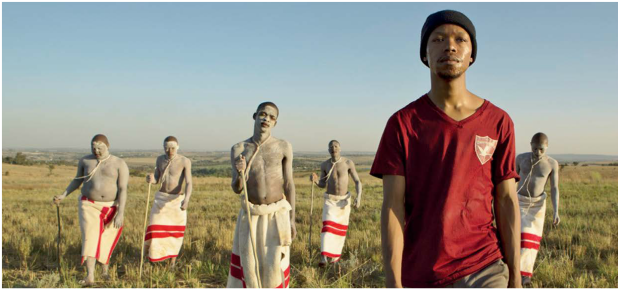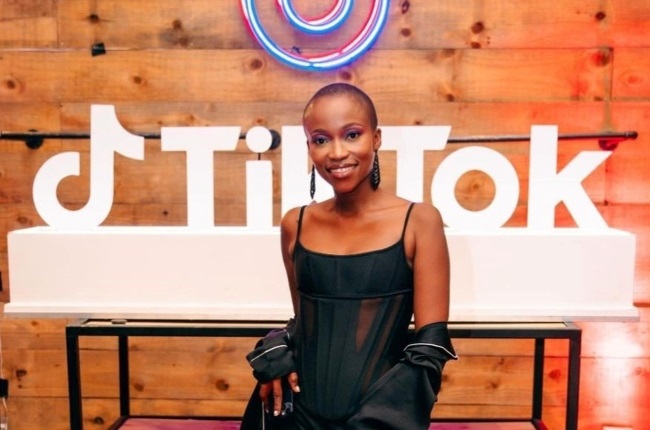
It was never going to be an easy task – making something that would cause so much controversy. How could it be simple when it touched on so many deep emotional issues and revealed sacred customs considered to be deserving of the highest levels of privacy known to man?
At the heart of it all is the fact that the tradition of ukwaluka (traditional manhood initiation) is portrayed in the film for all to see. But it’s not only that the private rituals are being shown on the silver screen – there’s also the portrayal of two ikhankathas (Xhosa initiation school facilitators) being in a gay relationship that has many people up in arms.
The controversy around The Wound, which was released at local cinemas recently, has not died down, even weeks after its premiere. Some are supportive – others are highly critical. “Who gave them permission to create that movie?” was the furious question from Phathekile Holomisa, former president of the Congress of Traditional Leaders of SA (Contralesa). “Whoever told the writers what happens in the mountains is a sell-out.”
But the man who plays the central character, Xolani, doesn’t feel the same. “I’m not surprised by the mixed public reaction to the film,” Nakhane Touré says. “You can’t live your life worrying about what other people think. “You’ll never get anything done. There’s always something to hate or criticise. But there’s also always something to love.”
The 29-year-old jumped at the chance to play the part of a lonely factory worker who returns each year to his homeland in the mountains of the Eastern Cape to become an ikhankatha. His role is to mentor the new candidates as they prepared for manhood. But there’s another reason he so desperately wants to head that way: To resume his sexual relationship with fellow ikhankatha Vija (played by Bongile Mantsai), a married father-of-three. “I felt it was bold and needed in our country,” Nakhane explains.
“There were a lot of things in the story I knew a lot of people who had been silenced could relate to. The things I also could relate to as a Xhosa man who has been to the mountain.” The In The Dark Room hitmaker – who is openly gay – doesn’t believe the film is lecturing people about their beliefs.
“We’re not aiming to teach anyone anything. If we do, we’re seeing ourselves as being in a superior position, which we are not. We’re not wagging our fingers at anyone or anything. We are telling a story – a story shared by a lot of people.”
But are South Africans ready for such a discussion? “Who knows when people are ready for anything. There is no consensus on issues like these. But the work has to be done.”
N Akhane landed the role of Xolani by sheer luck, he tells us from London, where he was promoting the film and working on his second album due later this year. He has a few moans and groans about the British weather, but otherwise he’s in top form.
And who can blame him? His first album in 2013, Brave Confusion, was a big success, and now his first screen role has become the second South African narrative film to be screened at Sundance (the first was Home, directed by Omelga Mthiyane, in 2004.) The movie’s director and co-producer John Trengove approached him to write the musical score for the film.
However, he also convinced him to audition. “I sort of sneered at the idea,” Nakhane admits. “In my mind, I’d put acting behind me,” the former Afda drama student says. “I also didn’t know if I still had it in me.”
Clearly he did. Once he got the part, he ditched the offer to compose the music. “I didn’t really want to be involved in it as a musician. I wanted the acting to consume me completely.” He became fascinated by Xolani’s character. “I wanted to know him more, to be him,” he says. “We share some similarities – but only on a superficial level. I’m also Xhosa. I’ve been to the mountain. But deep down, we are quite different people.”
Nakhane went to the mountain in 2008 when he was 20 years old. Unlike Nakhane, Xolani is not ready to reveal his sexuality.
He is challenged in the film by Kwanda (played by Niza Jay Ncoyini), a defiant rich boy from one of Joburg’s posh suburbs, who discovers Xolani and Vija’s affair. Kwanda’s father tells Xolani to be hard on the boy because he thinks he is “soft”, but Xolani soon finds out his young charge is someone who’s still in the closet about his own sexuality. It’s not an easy film to watch and Nakhane was sensitive to his family’s feelings about his involvement in the film. “I had conversations with an elder about how to tackle certain disagreements, and we were civil and mature about it,” he says.
We came to the conclusion that no one would police one’s views, even when they disagreed with them.” T HE men behind the script – John Trengove, Thando Mgqolozana and Malusi Bengu – are quick to defend their film. “The comments on social media are diverse,” John says. “There are those who are angry, but also there are those who are saying it is high time for a movie like this to exist.”
The director says he tried to be authentic and doesn’t believe he’s exploited a sacred tradition. “We did the research on the subject matter and there were a lot of aspects of the ritual we did not include.”
Most of the content was already known, he adds, pointing to Nelson Mandela’s autobiography, Long Walk to Freedom, and co-writer Thando’s book, A Man Who is Not a Man, which narrates the personal trauma of a young Xhosa initiate after a botched circumcision. “We made The Wound in collaboration with many Xhosa men, both in front and behind the camera,” John tells us.
“While we strived for maximum authenticity, the film does not expose any aspect of the experience that is not already in the public domain. If anything, we hope The Wound will show a more balanced view of Xhosa initiation than the casualties that grab newspaper headlines.”
He acknowledges the outrage, however. “It’s understandable with any work that deals with contentious subject matter. At the same time, we have experienced a strong wave of support from members of the Xhosa community who feel the film is initiating a conversation that is long overdue.”
He’s been backed by members of the lesbian, gay, bisexual, transgender and intersex (LGBTI) community. Church leaders and traditional leaders have been engaged about their concerns, says LGBTI activist Lelo Mayisela.
“These leaders should drive such dialogues so no one is discriminated against,” Lelo insists. Of course, with such a sensitive issue, there are no easy answers. But the fact that the questions are now being raised, is exactly what the filmmakers wanted.


















